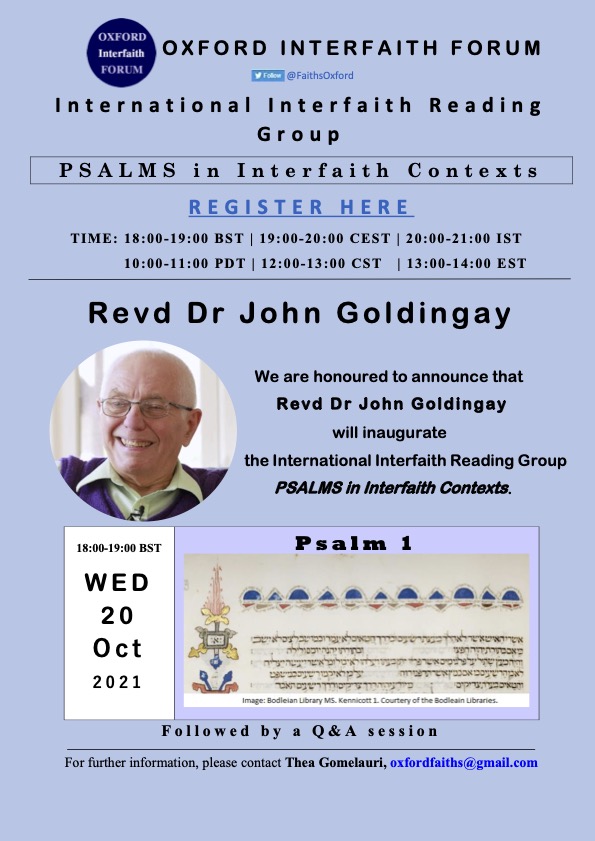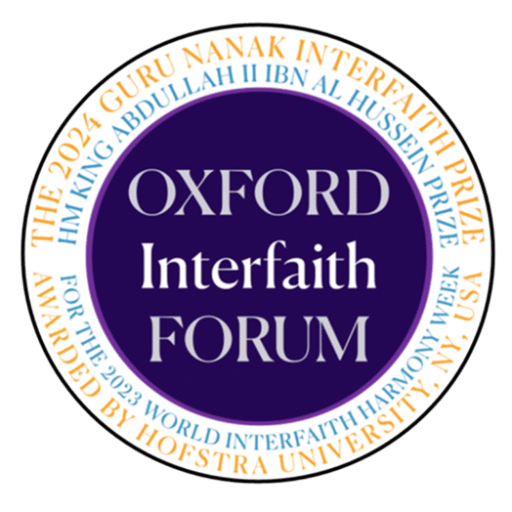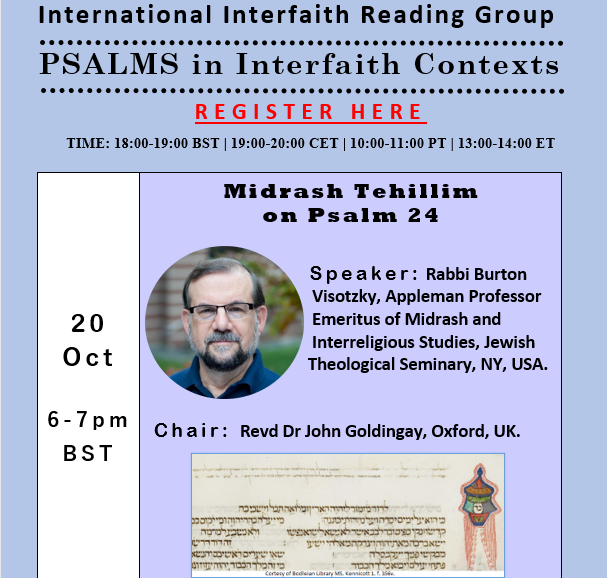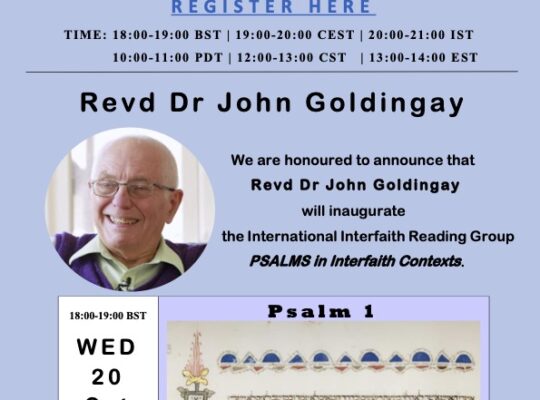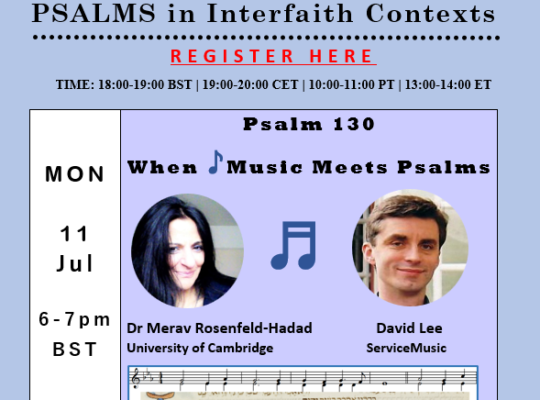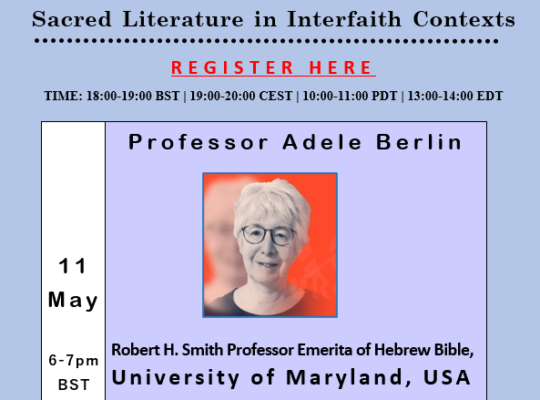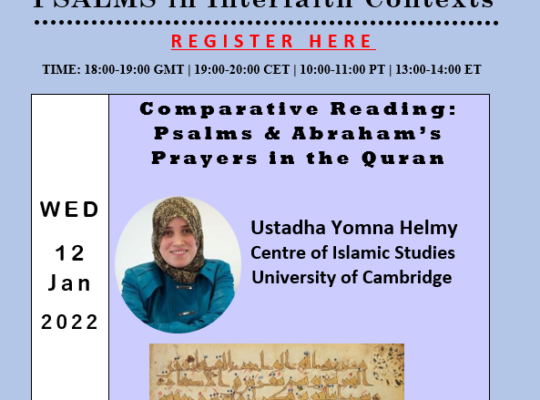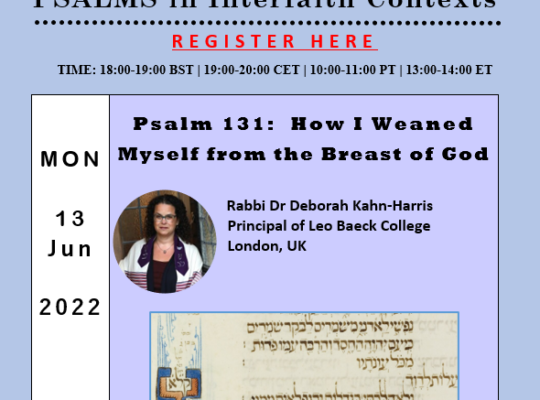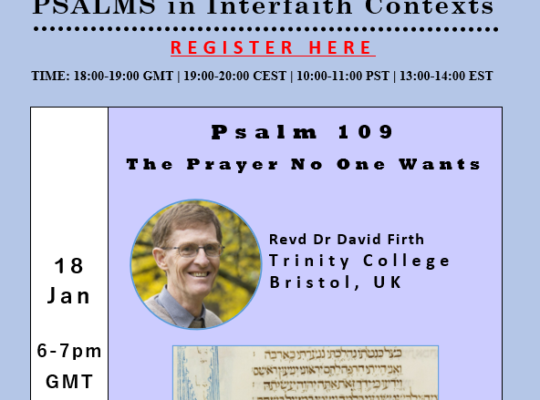20 October, 2022
We are delighted to welcome Rabbi Burton Visotzky, Appleman Professor Emeritus of Midrash and Interreligious Studies, Jewish Theological Seminary, NY, USA, to lead a session of the Psalms in Interfaith Contexts Reading Group.
Here are the details of this fascinating session.
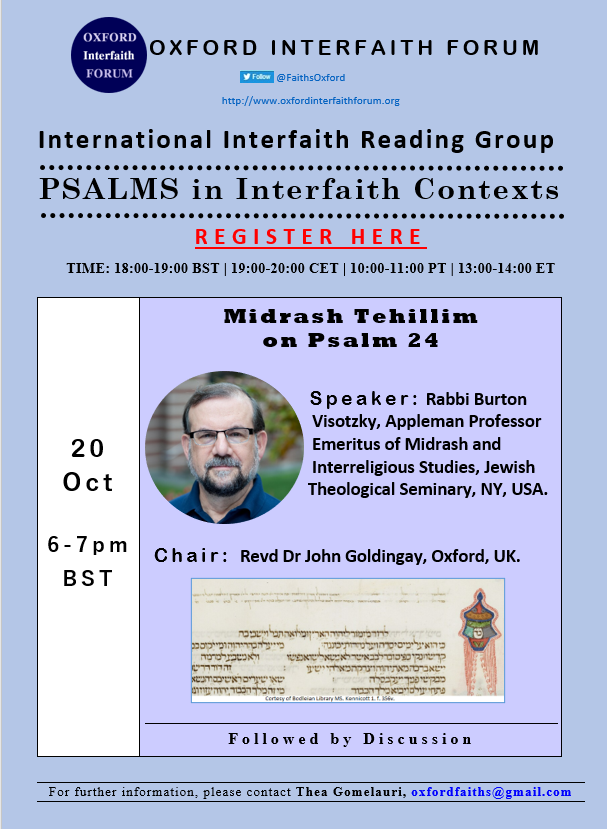
Topic: Midrash Tehillim on Psalm 24.
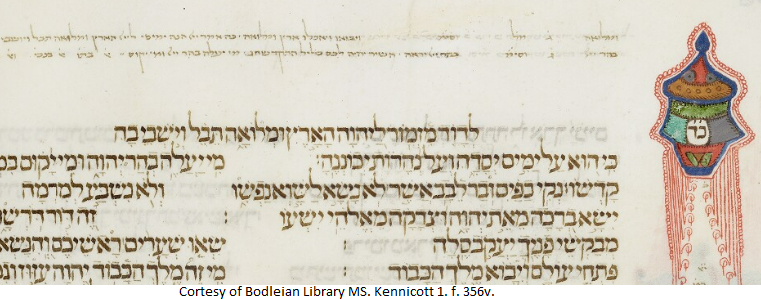
Abstract: Rabbi Burt Visotzky will lead us through the midrashic commentary on Psalm 24, focusing on a section that explicates the “headers” to various Psalms. Following the explication of the text, Visotzky will lead the participants in a discussion of how the spirit comes upon us today, as we pray, write, sing, and love.
Speaker: Rabbi Burton L. Visotzky, PhD is Appleman Professor Emeritus of Midrash and Interreligious Studies at the Jewish Theological Seminary, NY, USA. There, he directs the Milstein Center for Interreligious Dialogue. In 1985-86, he was a Visiting Scholar at the Oxford Centre for Hebrew and Cognate Studies as well as a Visiting Fellow of Clare Hall, University of Cambridge. He has taught as visiting faculty at Union Theological Seminary, Princeton Theological Seminary, The Pontifical University of St. Thomas Aquinas, and the Pontifical Gregorian University.
In 2012, he was awarded the Goldziher Prize for his contributions to Jewish-Muslim Dialogue. On October 23, 2022, he will be awarded the Shevet Achim award by the US Council of Centers for Jewish-Christian Relations for his contributions to Jewish and Christian Understanding. He serves on the Executive Committee of the Board of Governors of the International Jewish Committee for Interreligious Consultations and is a member of the Council on Foreign Relations.
Chair: Revd Dr John Goldingay, Oxford, UK.
Date: 20 October, 2022
Time: 18:00-19:00 BST I 20:00-21:00 Israel Time | 10:00-11:00 PDT | 13:00-14:00 EDT
Venue: Online
After registering, you will receive email from ZOOM containing information about joining the meeting.
PLEASE check your SPAM/JUNK folder if you do not see a Zoom email in your inbox.
If you would like to join the Psalms in Interfaith Contexts Reading Group, please sign up here.
If you missed this session, a recording is available below:
Related Sessions
- Illuminating The Psalms: 29, 92, and 96, in Many Moments
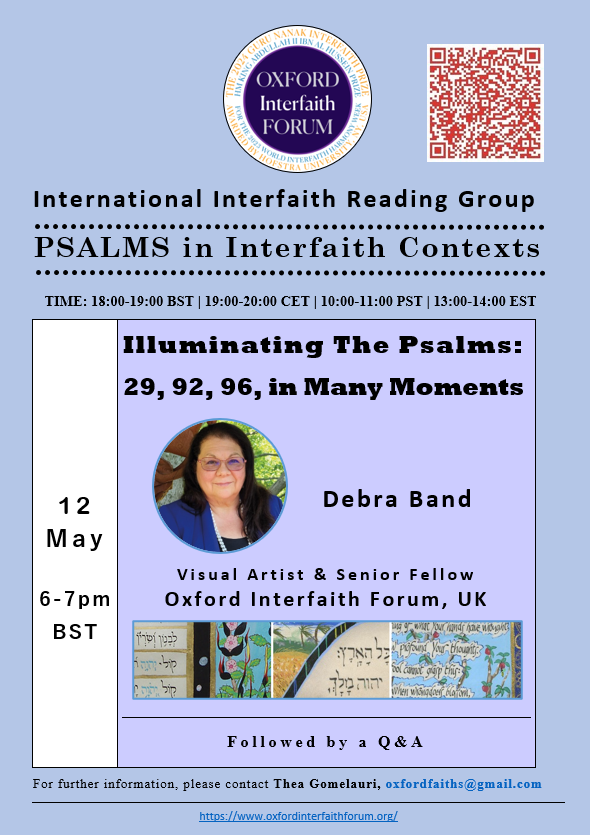
- Psalm 136: Hesed as Praxis
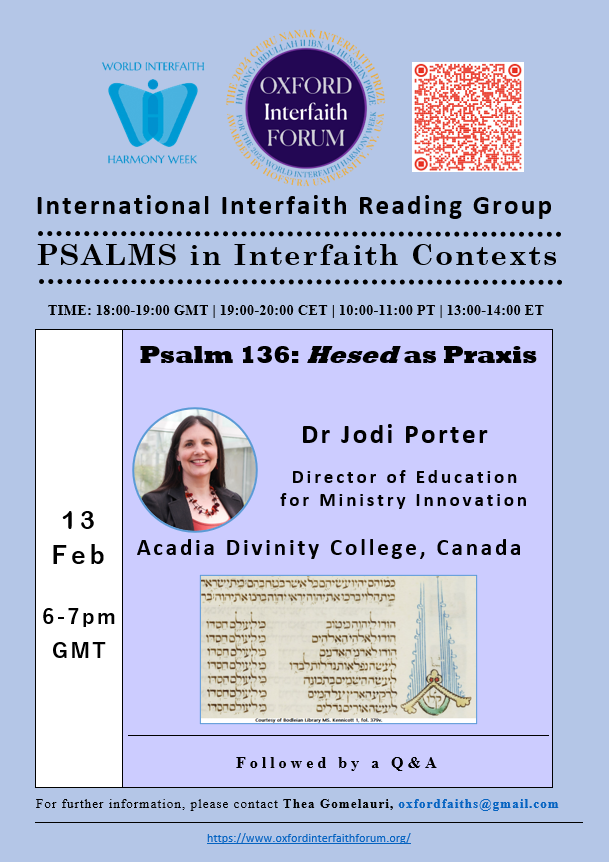
- Was Genesis 1 Dependent on Psalm 104?
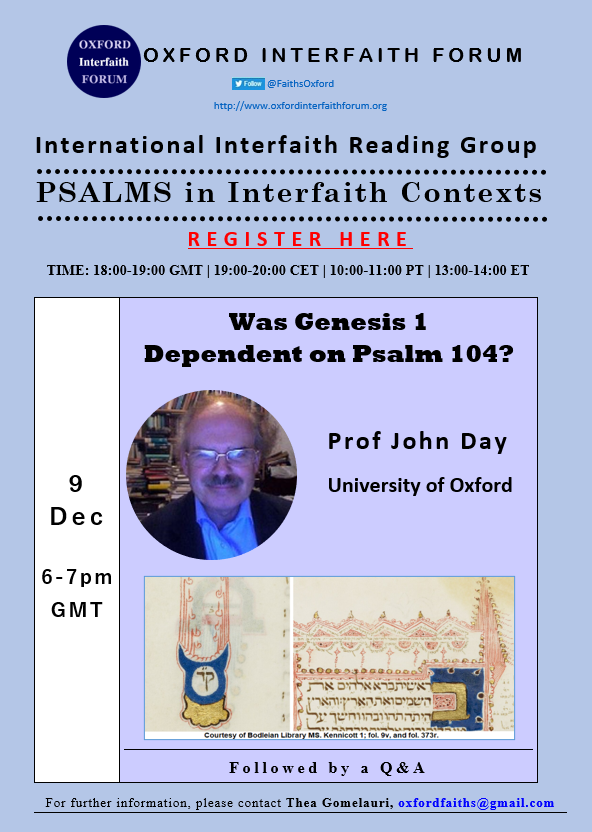
- The Seven Penitential Psalms in the Allegorist’s Hands
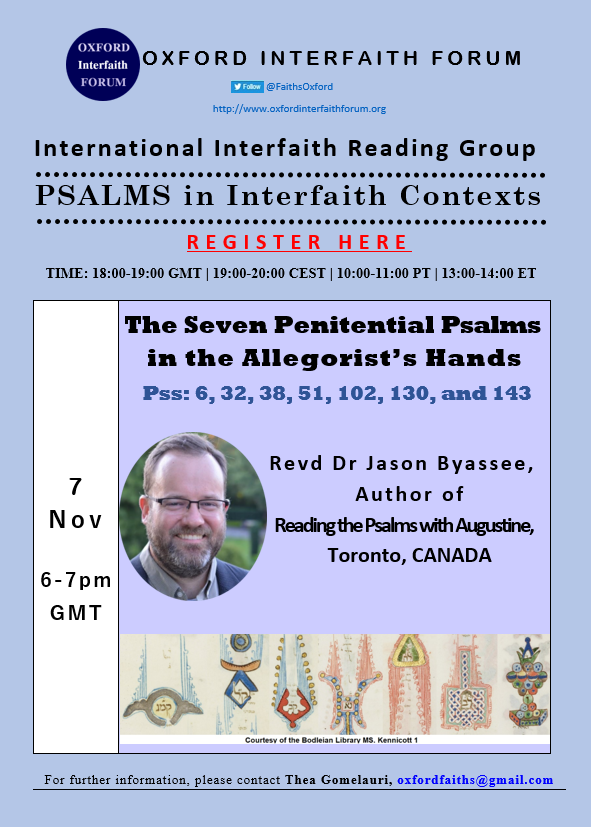
- Beyond Exegesis: The Psalm Cultures of Ancient Jews and Early Christians
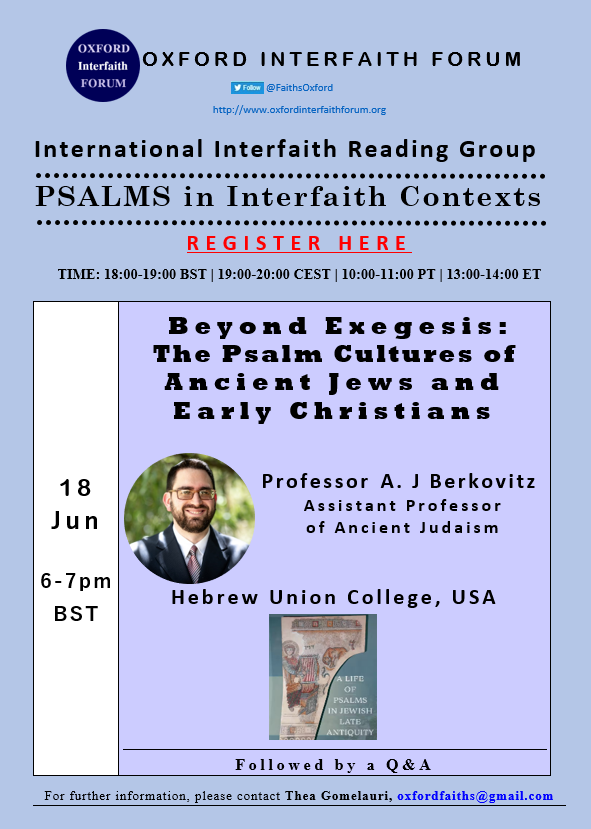
- Psalm 40 and Messiness of Prayer
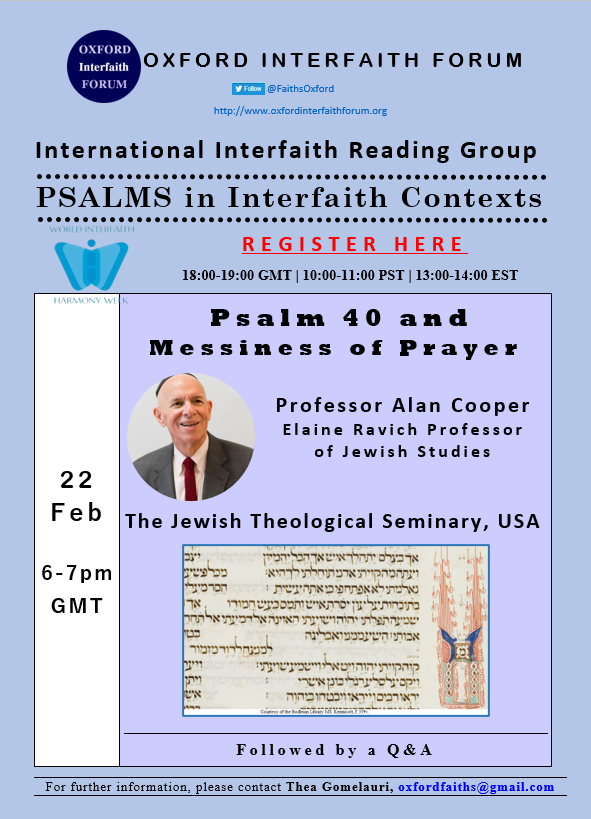
- Psalm 109: The Prayer No One Wants
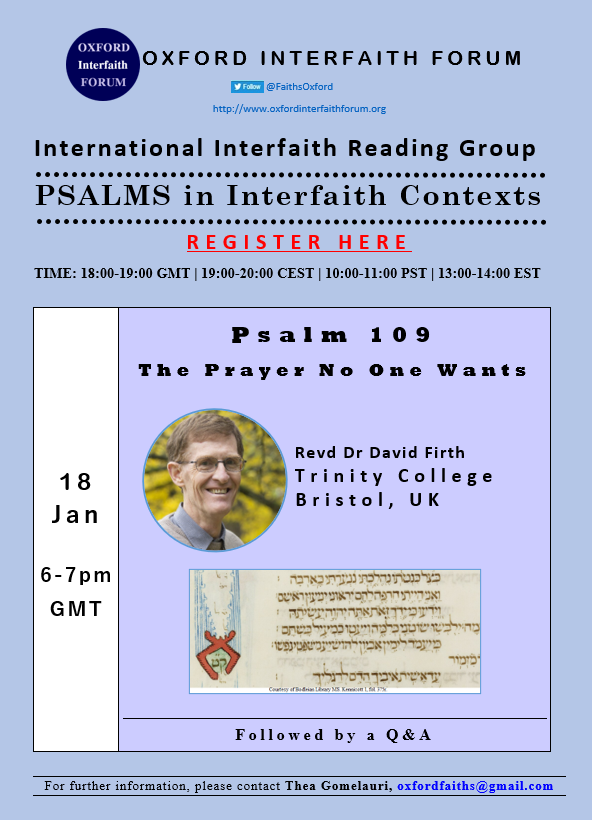
- Psalmody as an Alternative to Theodicy
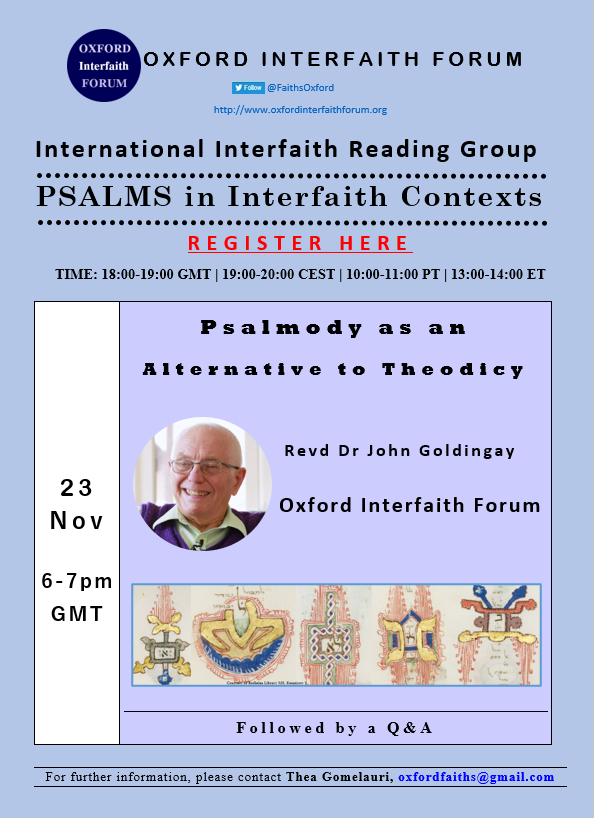
- Psalm 44 and the Book of Job: God on Trial
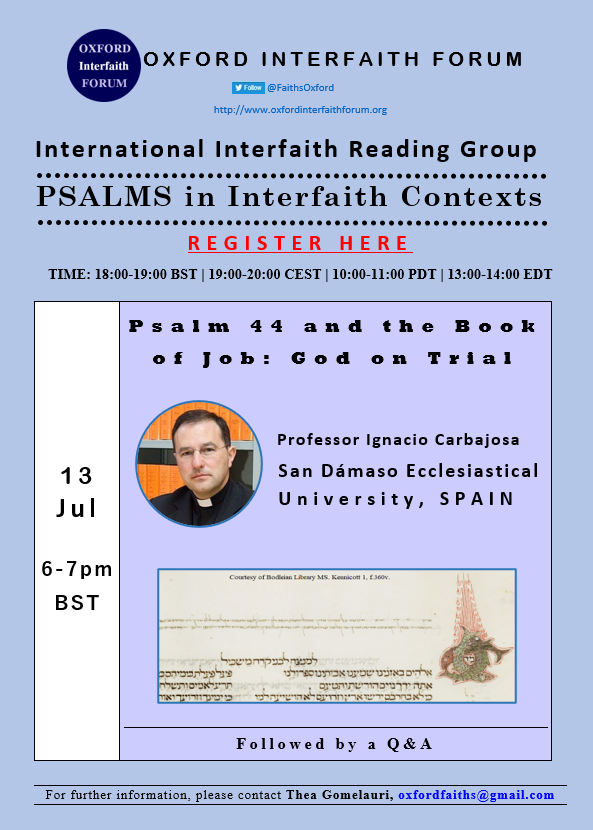
- Exile and Restoration in the Psalms
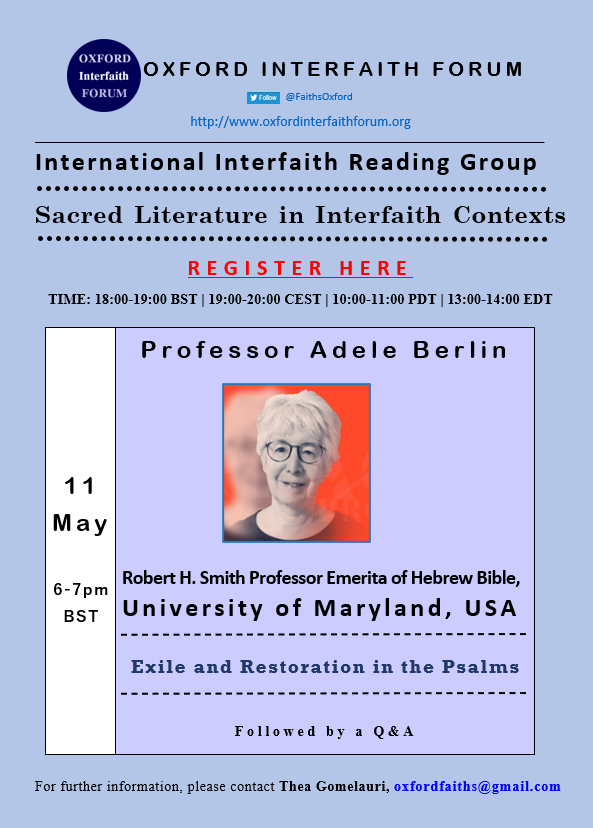
- ‘Deep cries unto deep’: Julian of Norwich and Psalm 42
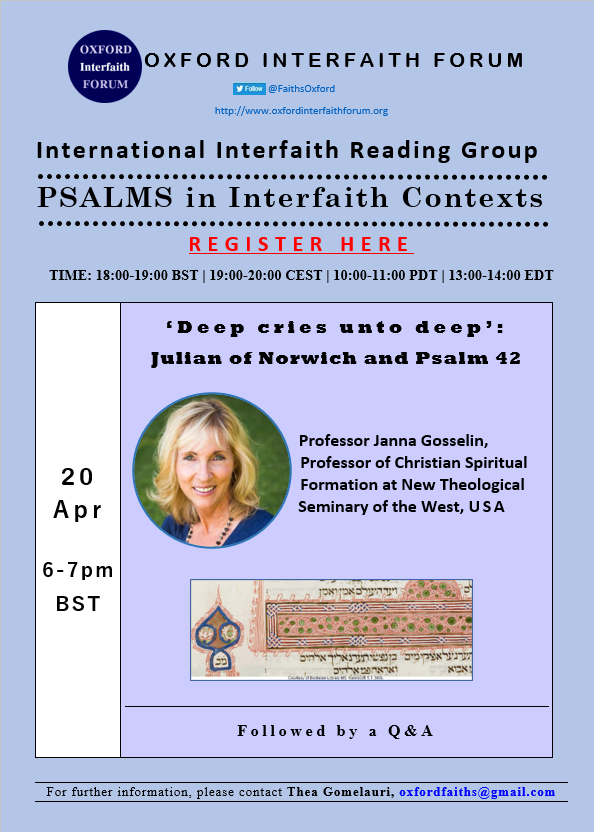
- Ancient Versions of Psalms in Dialogue: Psalms 49 and 104
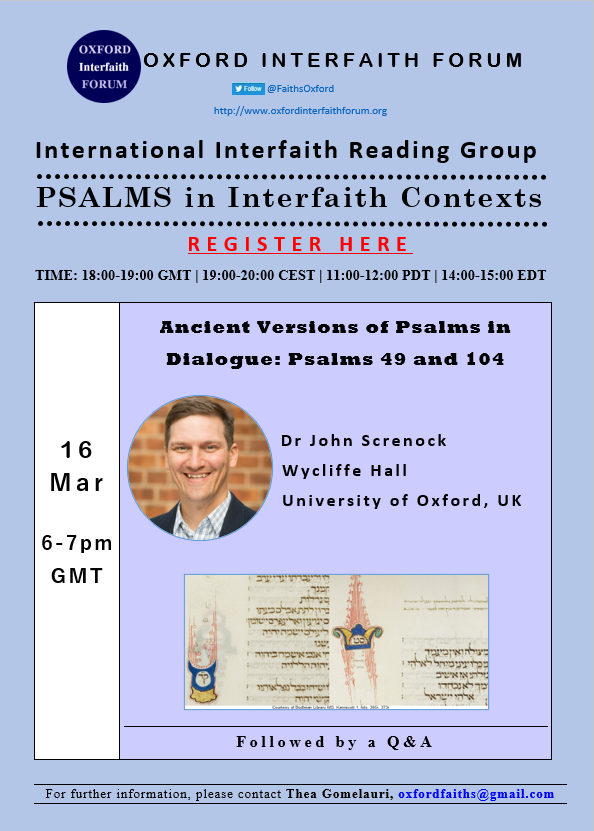
- Awake, My Soul! Psalms: 44; 57; 133; 143
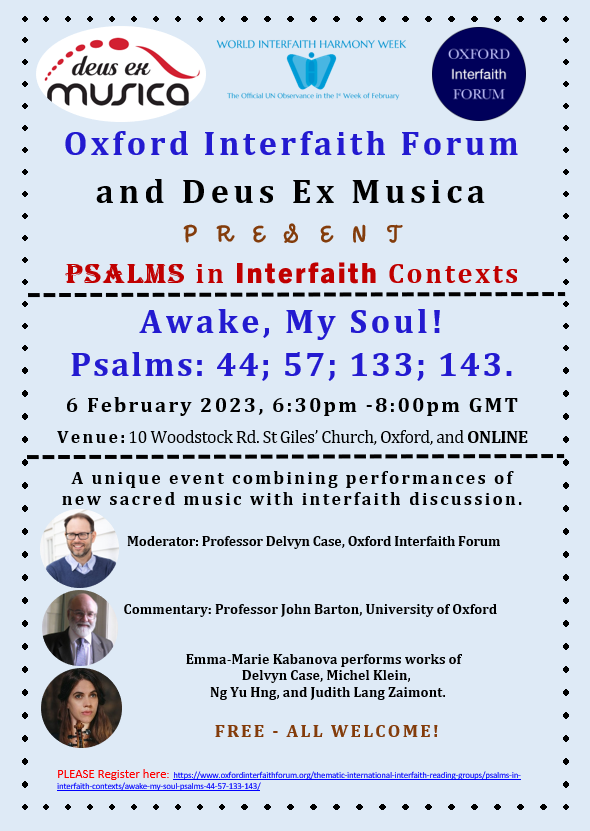
- Psalm 106: Fall of Jerusalem and Lamentations Ch. 3
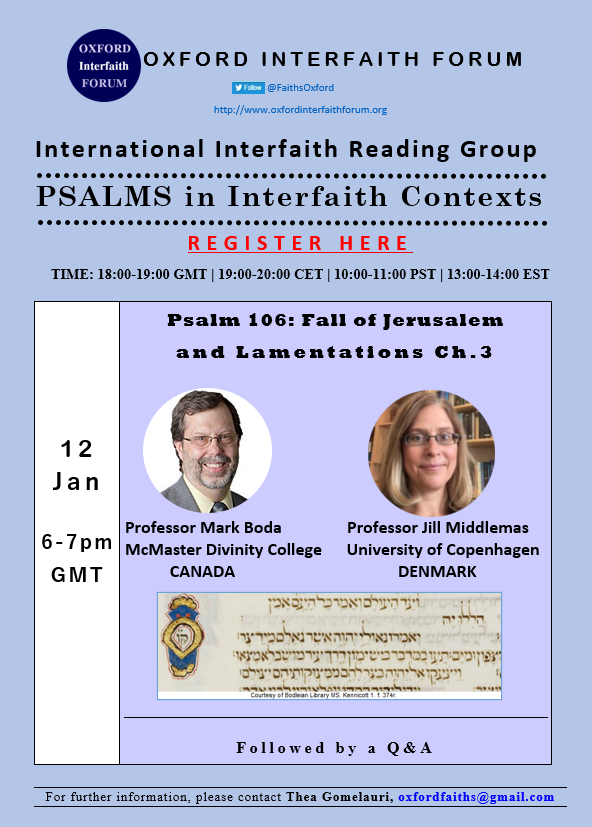
- Psalm 37:25, Innocent Suffering, and Divine Recompense
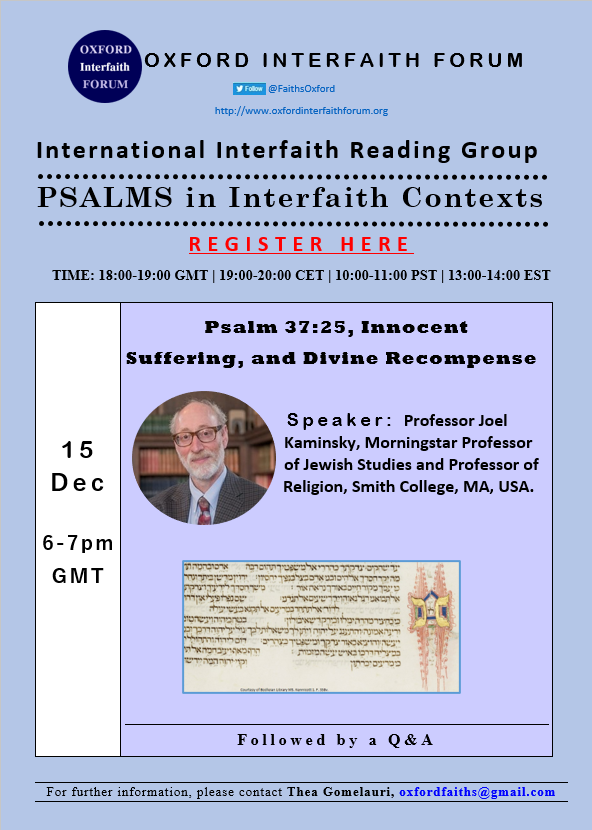
- Spurring Colonialism and Slavery: Protestants and Catholics United in their Use of Psalm 132
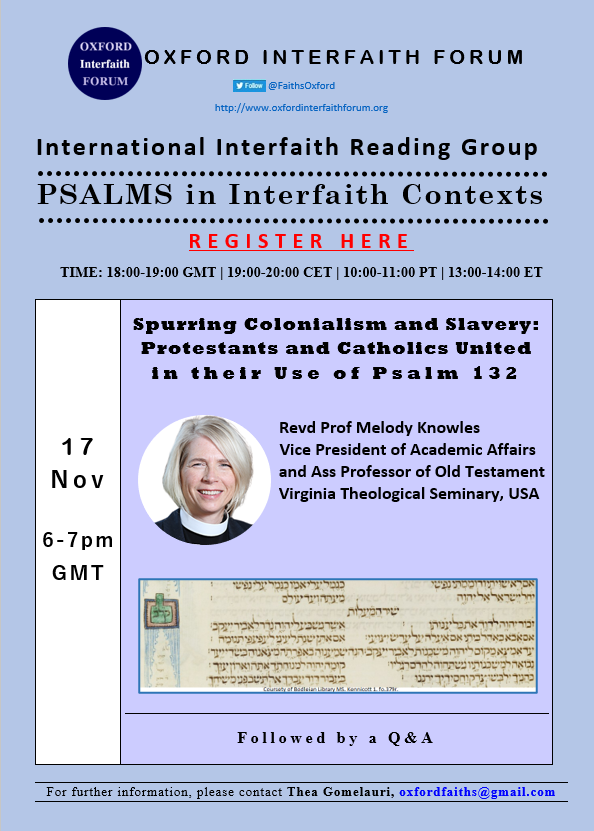
- Midrash Tehillim on Psalm 24

- Psalm 19: Muslim Reflections on Creation
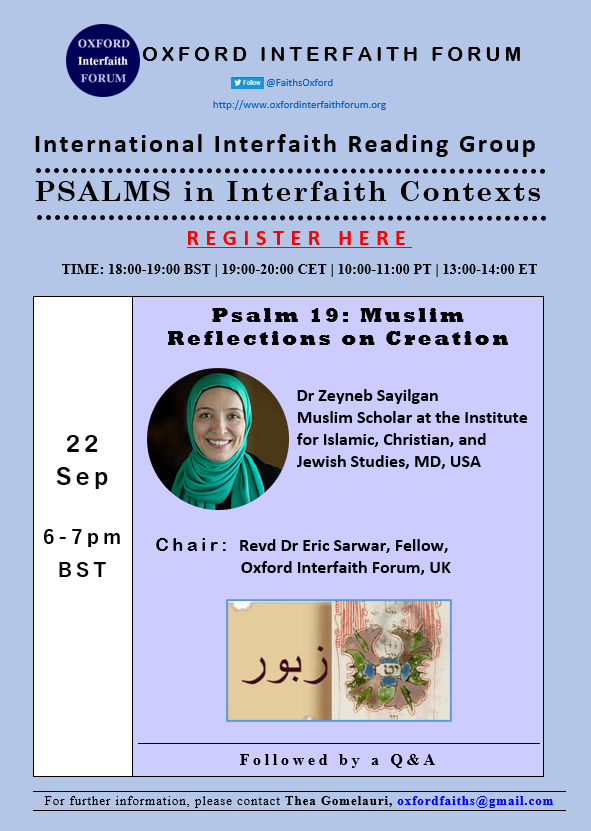
- Psalm 46: Singing in Hope and Defiance
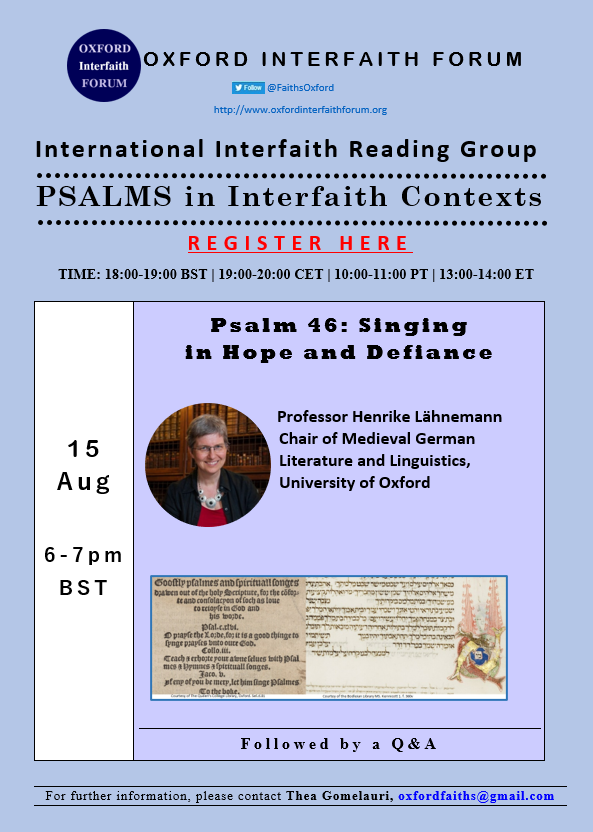
- When Music Meets Psalms: Psalm 130
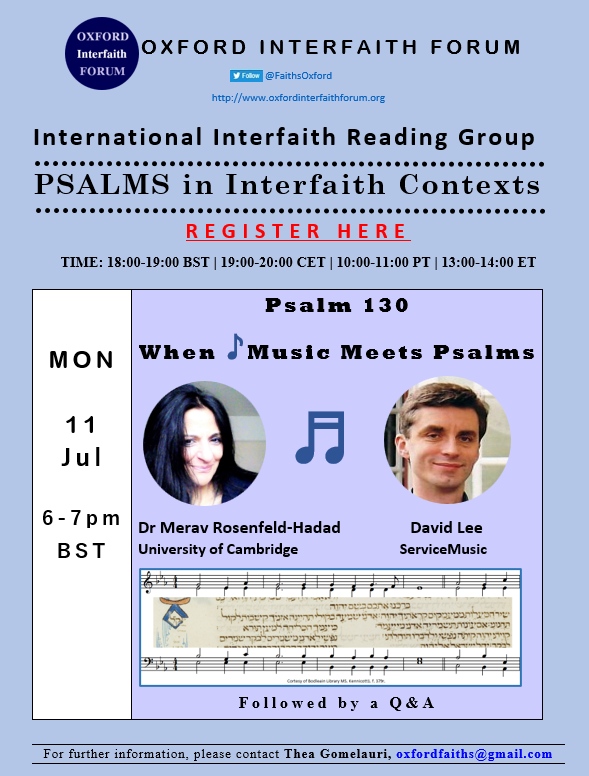
- Psalm 131: How I Weaned Myself from the Breast of God
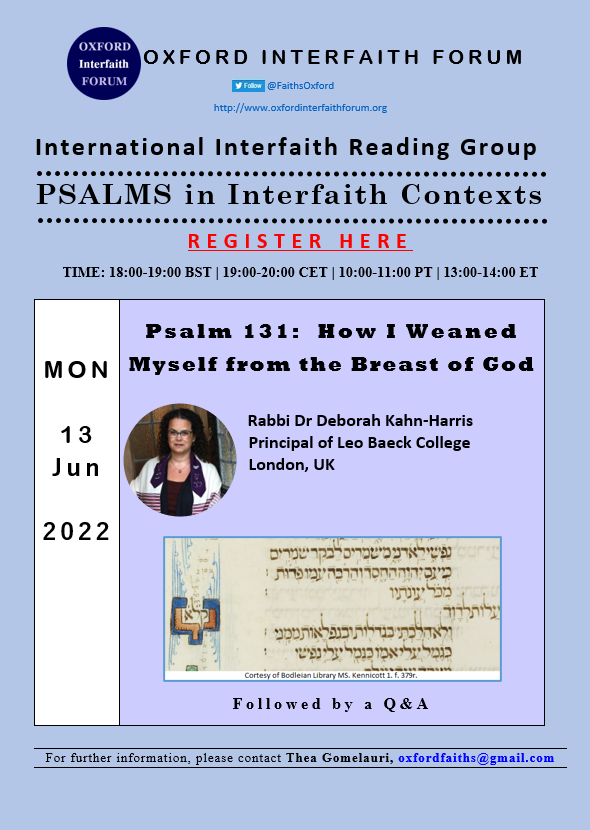
- Psalm 132: A Song of Ascents
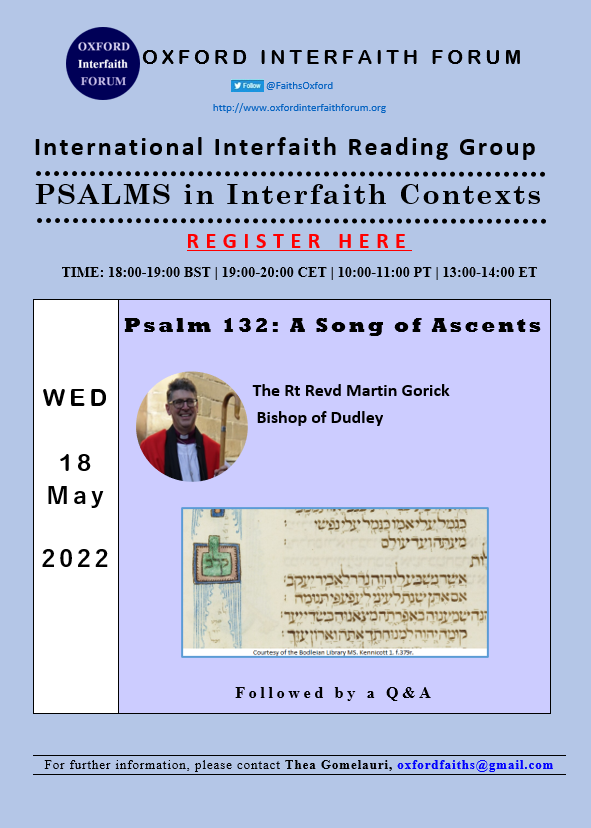
- Psalm 88: ‘Fists Flailing at the Gates of Heaven’
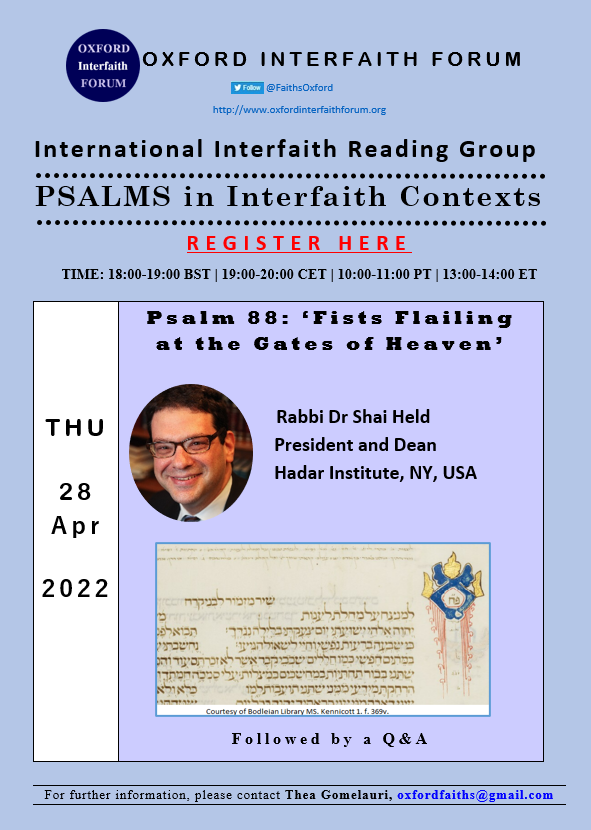
- Psalm 82: Demanding Justice
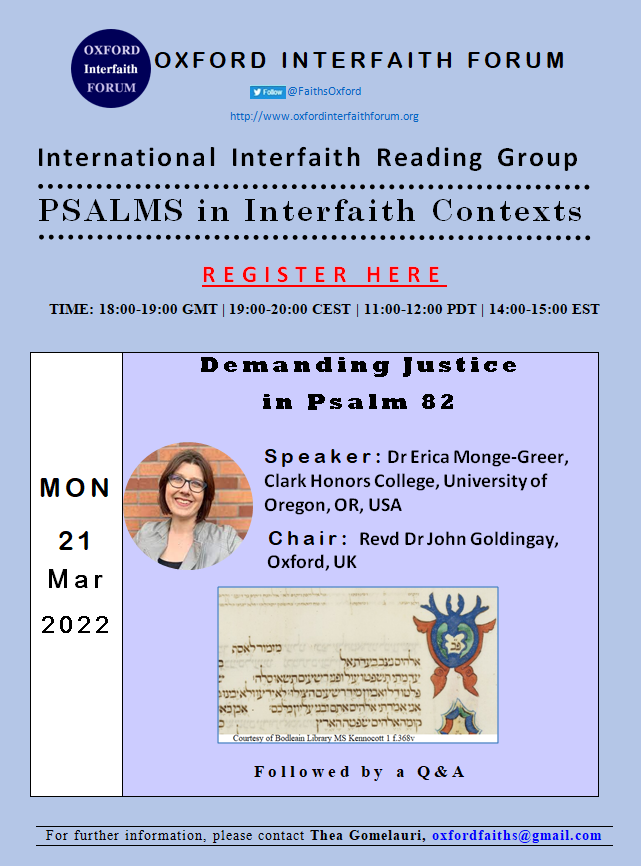
- Psalm 51: Contemporary Multifaith Interpretations
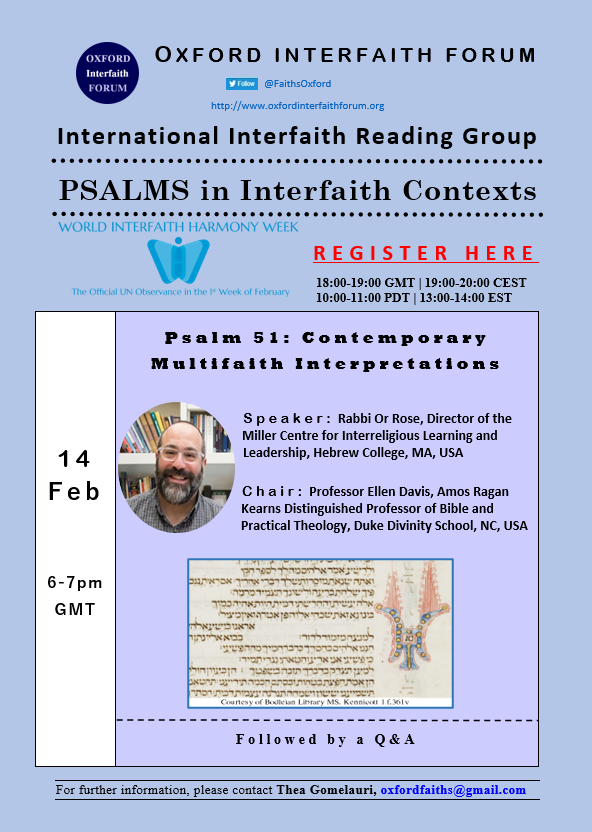
- Comparative Reading of Psalms and Abrahams’ Prayers in the Quran
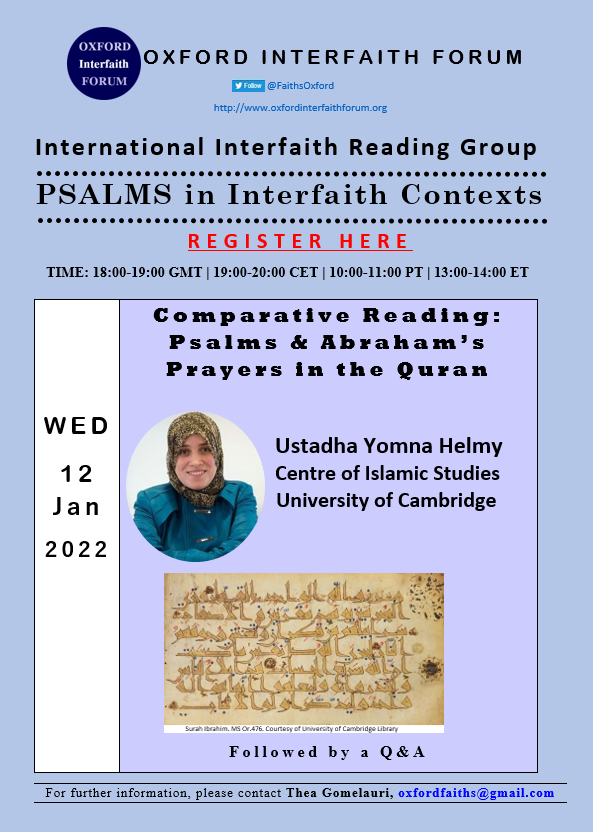
- Psalm 33: Mystical Reading
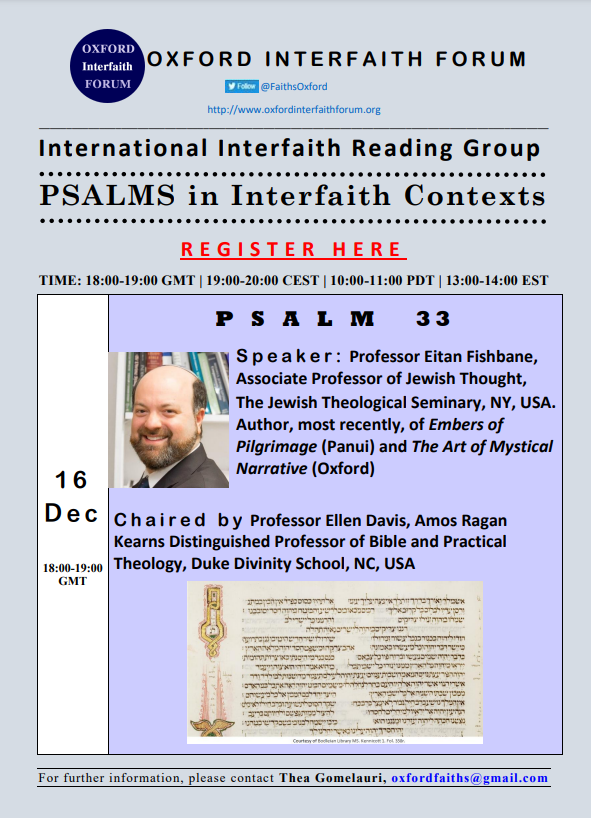
- Psalm 139
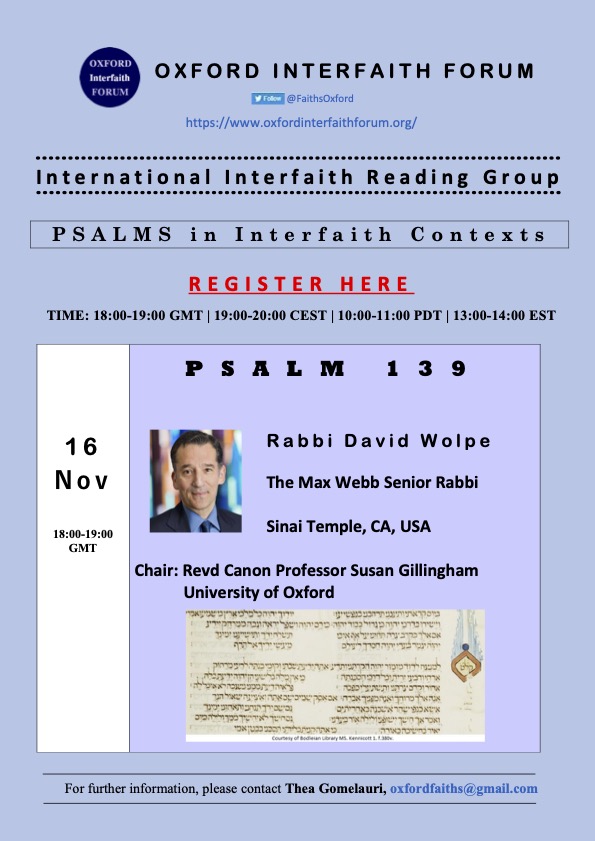
- Psalm 1: Inaugural Session by Revd Dr John Goldingay
